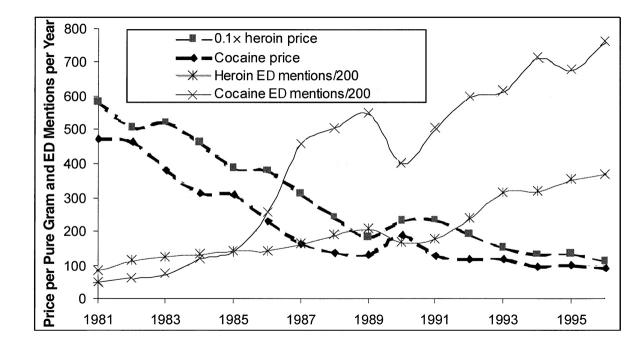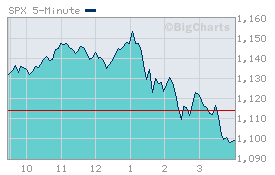
Against Monopoly
defending the right to innovate
Monopoly corrupts. Absolute monopoly corrupts absolutely.
Copyright Notice: We don't think much of copyright, so you can do what you want with the content on this blog. Of course we are hungry for publicity, so we would be pleased if you avoided plagiarism and gave us credit for what we have written. We encourage you not to impose copyright restrictions on your "derivative" works, but we won't try to stop you. For the legally or statist minded, you can consider yourself subject to a Creative Commons Attribution License.
current posts | more recent posts | earlier posts
Fifteen minutes of fame
[Posted at 10/26/2008 08:36 AM by David K. Levine on Against IM  comments(0)]
comments(0)]
Latest TIIP is out
[Posted at 10/26/2008 08:30 AM by David K. Levine on Innovation  comments(0)]
comments(0)]
Scribd Version of Against Intellectual Property
[Posted at 10/26/2008 08:12 AM by Stephan Kinsella on Intellectual Property  comments(0)]
comments(0)]
McCain wants party right to copy as fair use
The incident has led the campaign to assert that the election is upon us and it can't wait for the issue to be adjudicated, so it should receive priority treatment. YouTube doesn't want to be forced to make the judgment on fair use. The Electronic Freedom Foundation opposes special treatment for political groups and wants uniform and extended fair use for all.
Hansell observes that given the unlikelihood of McCain's winning the election, he may never have the chance to lead the move to change the DMCA.
But this experience once again illustrates the fundamental absurdity of this law and more broadly, of copyright.
[Posted at 10/20/2008 09:10 AM by John Bennett on Fair Use  comments(0)]
comments(0)]
Microsoft patents automated censorship; Works as well as Windows
I ask myself if MS is serious with this patent. The probability of false positives or altering meaning is high so that I can see damage suits arising. I also read the patent as being a hunting license rather than an existing device and ask myself why it was granted. The patent itself notes that a delay in transmission with humans reviewing the speech to determine offense has generally worked. Is this MS in its latest guise as patent troll?
The Patent Office seems to have lost all sense.
[Posted at 10/19/2008 11:28 AM by John Bennett on Patents (General)  comments(2)]
comments(2)]
Off topic for your amusement
[Posted at 10/17/2008 07:59 PM by David K. Levine on The State and IP  comments(1)]
comments(1)]
Does the Piracy Paradox apply for Patents?
Does the Piracy Paradox apply for Patents?
"A 2006 paper by Kal Raustiala (UCLA) and Chris Sprigman (UVA) titled the Piracy Paradox discusses intellectual property and the fashion industry. The authors conclude that the legal ability of manufacturers to create knock-off versions of fashion designs actually promotes innovation and investment in that industry. Similar phenomena have been explained in other industries. In music, for instance, some studies have shown that peer-to-peer file sharing of copyrighted work actually increases sales because of the increased popularity of the artist. Since the dawn of radio, record companies have paid stations to broadcast their music - even though the broadcast would be considered infringement.
"My question is whether there are patent specific examples of this process going on? Are there times when 'piracy' of a technology actually encourages further R&D?"
[Posted at 10/16/2008 12:03 PM by Stephan Kinsella on Patents (General)  comments(0)]
comments(0)]
Under the dark of night

(graph from the American Journal of Public Health)
The position of drug czar was created in 1982 (according to Wikipedia). The dark lines are the prices of cocaine and heroin which have been falling ever since. Does the creation of a "czar" position mean that they have given up hope?
Addendum: There is something else interesting in that graph. One industry that operates entirely without the "benefit" of patents and copyright is the illegal drug industry. Yet it is a very innovative industry. For starters, as can be seen in the graph, prices have dropped quite a bit - over 15 years by a factor of about 5 (a little more allowing for inflation). Few industries can match that. And we know that there have been significant innovations: the invention of crystal methamphetamine; rock cocaine; stronger strains of marijuana and so forth. And presumably there have been innovations in methods of smuggling drugs into the country. Clearly these have been widely imitated. Which brings up the question: maybe if the government legalized recreational drugs, but subjected them to the same type of patent restrictions as ordinary pharmaceutical products - the price would go up instead of down?
[Posted at 10/13/2008 07:43 PM by David K. Levine on IP in the News  comments(10)]
comments(10)]
McCain to YouTube: ever heard of fair use?
[Posted at 10/13/2008 06:52 PM by Andrea Moro on Fair Use  comments(2)]
comments(2)]
Shouldn't they have read the bill

(The vote was at 1:30 pm Eastern time.)
Addendum on credibility: We were repeatedly told that various bad things would happen if the bailout bill was not passed by a certain date, usually tomorrow or next Monday. The banking system would collapse. ATMs would stop working. Firms would stop be able to meet payroll. None of those things ever happened. One of the promised bad things was the collapse of the Asian stock market which woke up a week ago on Monday, saw that no bill was yet passed and survived. The house turned down the bill later in the day; the Asian market survived again. Today...Monday October 6, after the bill passed...the headline is "Asian markets plunge on crisis fears."
[Posted at 10/03/2008 02:02 PM by David K. Levine on Against Monopoly  comments(0)]
comments(0)]


Most Recent Comments